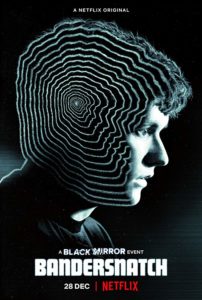 “Bandersnatch,” Black Mirror (2018)
“Bandersnatch,” Black Mirror (2018)
Released by Netflix on December 28, 2018
Rating: TV-MA
Written by: Charlie Brooker
Directed by: David Slade
Running time: I spent 2+ hours on it, but your mileage, and patience, may vary.
Why I Chose It: Even after this uneven past season, I’m still a devoted Black Mirror viewer.
The premise:
It’s 1984, and nineteen-year-old Stefan Butler (Fionn Whitehead) approaches Tuckersoft Games to help him adapt his favorite Choose Your Own Adventure book, Bandersnatch, into a video game of the same name.
This is a spoiler-free review.
People have been heaping tons of praise on the Black Mirror episode “Bandersnatch.” It’s been called brilliant and groundbreaking. A real game changer. But is it?
Short answer: No. Long answer: Maybe…
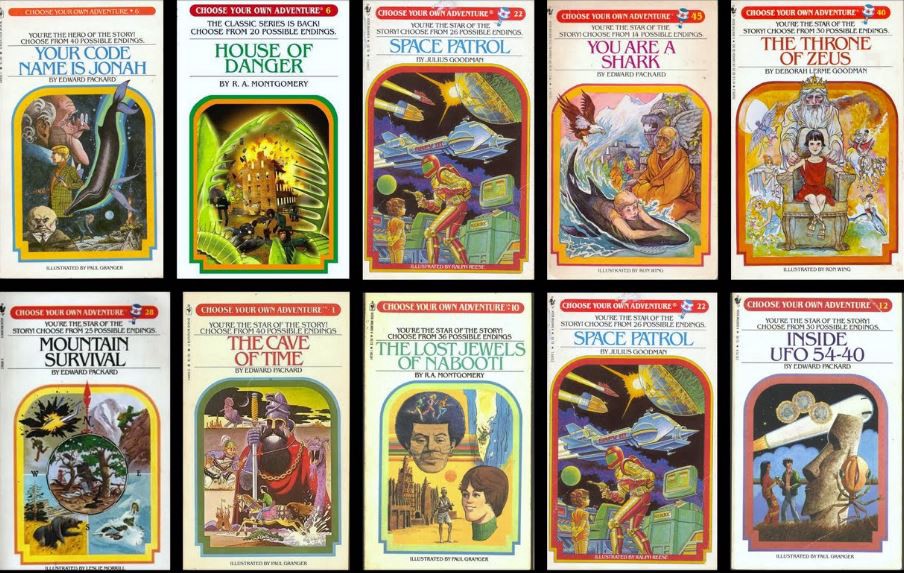
“Bandersnatch” is less an episode of television and more of a game. Or, if you prefer, it’s a Choose Your Own Adventure story. Either way, there’s nothing groundbreaking about an author or game writer giving the reader or player a choice in their narrative’s path. Yes, this is the first time a screenplay writer/network have joined the fray (if you don’t count the alternate scenes or endings available on many a DVD), but that hardly makes the episode a game changer. In fact, for the most part, it follows the classic format to a T.
The choices start out small — What sort of cereal should Stefan eat? What music should he listen to?–but they become larger and more impactful as the story goes on. You have ten seconds to make every choice. If you don’t make a choice (i.e., don’t press your remote button), then the show chooses whatever option your cursor is under. And that’s it. The show gives you a tutorial at the start, but the gameplay is as basic as it gets.
That said, there are two things that make the game work particularly well. One: There’s no lag or noticeable transitions between making your choice and the continuation of the story. I expected a jump or something while Netflix processed my choice and was pleasantly surprised to find none. There is an occasional edit or cut, but more often than not, the moment plays out seamlessly on the screen. Two: Should you happen to reach one of the many endings and choose to go back without restarting the whole episode, the static narrative is merely recapped. In other words, you don’t have to watch whole scenes where you don’t have a choice over and over. If you ever read a Choose Your Own Adventure book, it’s like holding your place with a finger while you make your choice so you don’t have to start all over if/when you die.
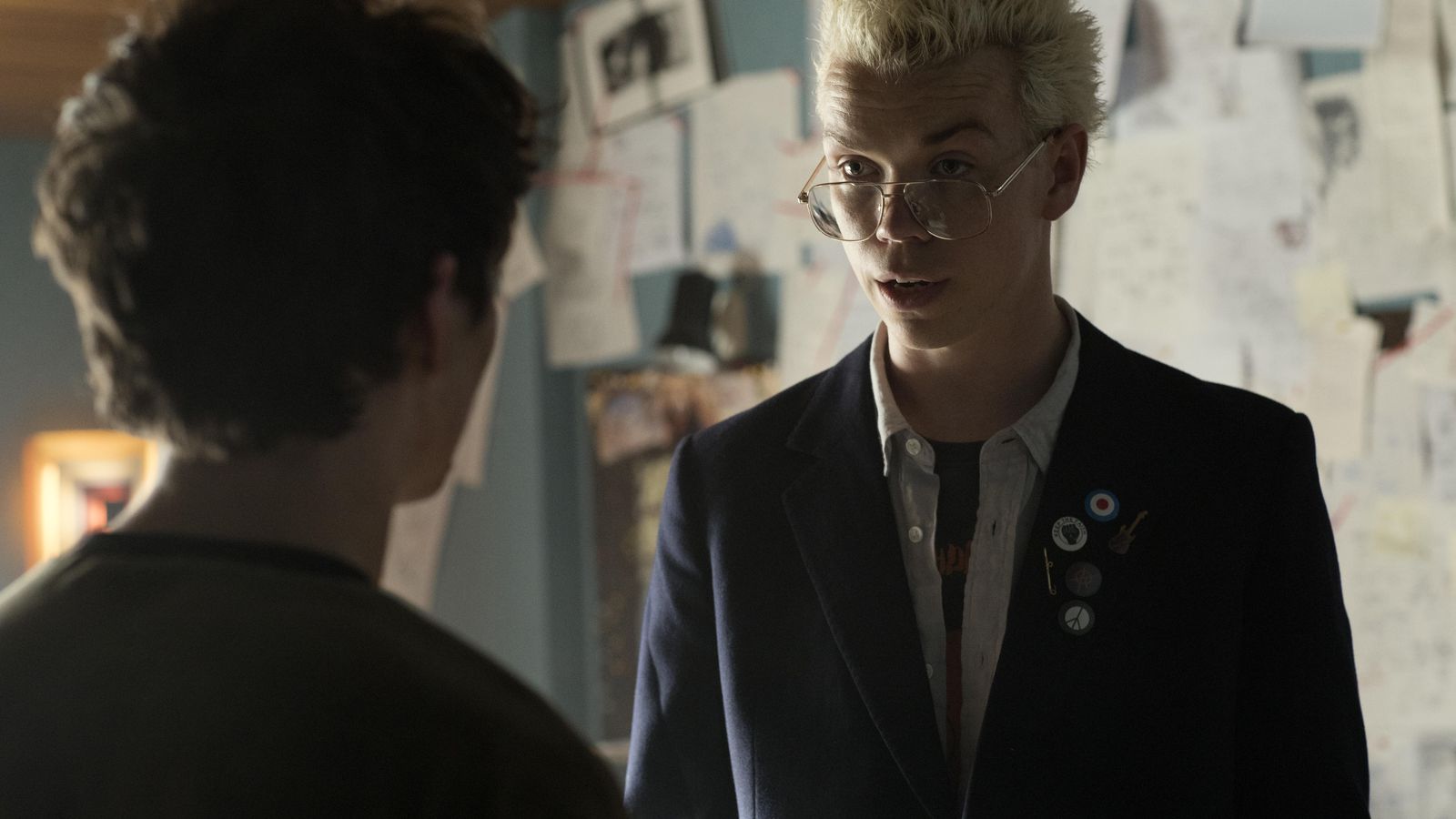
Stefan Butler (Fionn Whitehead) talking to Colin Ritman (Will Poulter).
As I mentioned above, I played/watched for over 2 hours, and I followed as many different paths as I could find. There are two choices I couldn’t find my way back to, no matter how hard I tried, and I’m sure there are paths I never found, but I did find quite a few, and I played until I was only on paths I’d already taken.
To be honest, I have played games that I enjoyed more or that I was more emotionally affected by. There are some twists and turns that I most definitely didn’t see coming, and there are more than a few of Black Mirror‘s self-referential Easter eggs to stumble across. (For instance, the resemblance between game programmer Colin Ritman in “Bandersnatch,” played by Will Poulter [see above], and Robert Daly, the game programmer played by Jesse Plemons in the excellent episode “USS Callister,” cannot be a coincidence. Not in the Black Mirror Universe.) At any rate, if you’re hungry for spoilers, or to know whether you’ve found all the endings, there are plenty of people online who’ve been digging into the episode since it appeared on Netflix. But I want to take a minute to talk about “Bandersnatch” as a work of art.
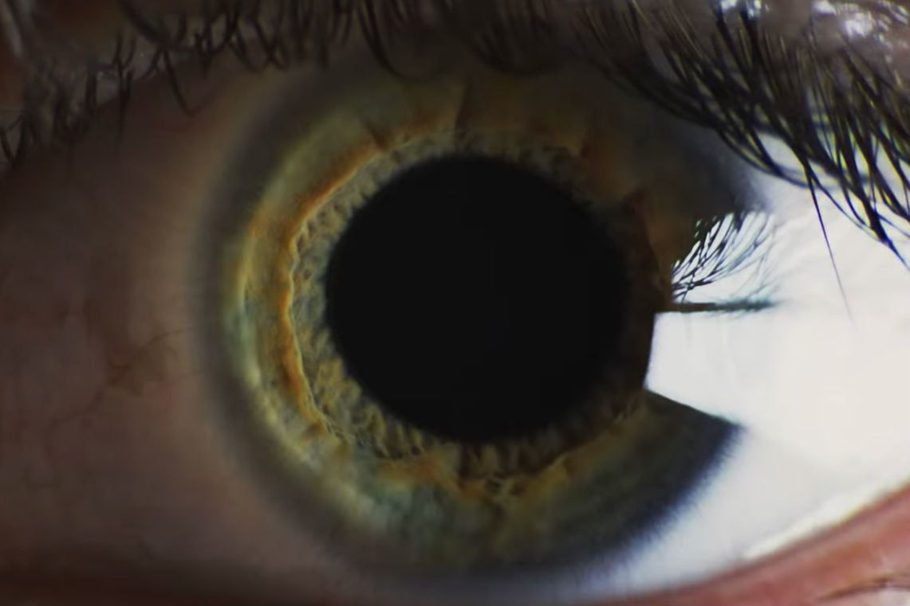
Bandersnatch is an actual word. According to Merriam-Webster, it’s a noun referring to a wildly grotesque or bizarre individual. It could be used to describe Black Mirror, those who create every weird and/or twisted episode, or even the viewers. Myself included, of course. After all, who could derive pleasure or entertainment from producing or consuming such wildly grotesque or bizarre fare? A bandersnatch, that’s who, and that’s what makes the title of this episode so appropriate. “Bandersnatch” is the apotheosis of Black Mirror‘s central theme — that by spending so much time staring into our black mirrors (aka electronic devices), we allow them to control and define us.
Because “Bandersnatch” is a more of a game than it is an episode of television, through the mere act of playing it, we become complicit in the narrative. Therefore, there is no other work of metafiction I can think of that compares to “Bandersnatch.” The episode doesn’t just break the fourth wall; it acts as if the fourth wall never existed. Which is to say, the line between consumer and creator is shattered at times, and I found those moments incredibly exhilarating. Even a bit mind-blowing.
So, in that way, “Bandersnatch” is brilliant. Although, it does fall just short of perfection. To make it absolutely perfect, the player would require infinite choices and infinite outcomes, and that’s impossible. For now, anyway. To the characters in the episode, back in 1984, Netflix would seem like an impossibility, so who knows what the future will bring?
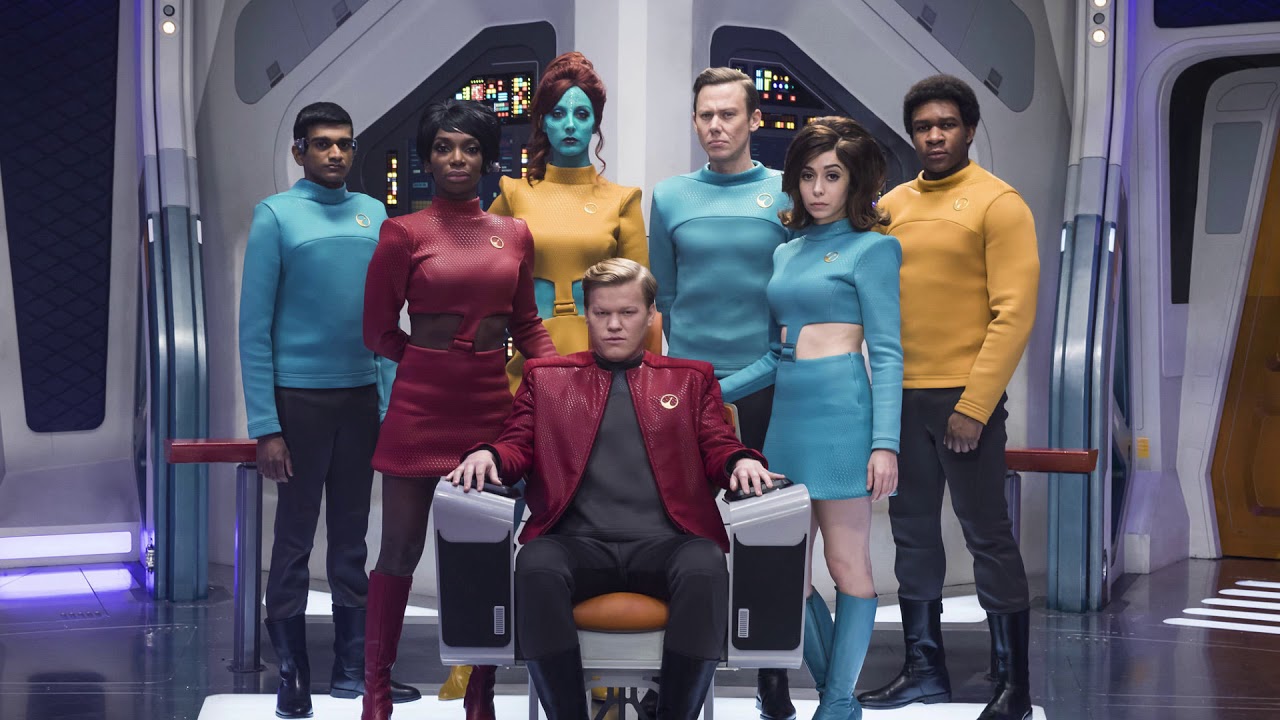
The cast of “USS Callister.” Note Robert Daly (Jesse Plemons) in the captain’s chair.
In conclusion: As far as games go, I’ve played better. However, in terms of Black Mirror episodes, I’d put it at the top of the heap. Really, even if you’ve never watched the show, I’d categorize this as “must-see TV.” 5 out of 5.

Oh man. The image of the Choose Your Own Adventure books brought back some memories. I had a whole system that allowed me to read the entire book and do all the choices in one sitting. *That’s* how many of them I read. Haven’t seen Bandersnatch yet, but been wondering if the same system would work or not…
I played for quite a while, and I’m pretty sure I saw 99% of the story/endings.Try out your system, though. I’m curious to see if it works!
[…] wall never existed. Which is to say, the line between consumer and creator is shattered at times” (Bales). My literal reaction when I read this in her review of the episode was “yasss queen” because […]